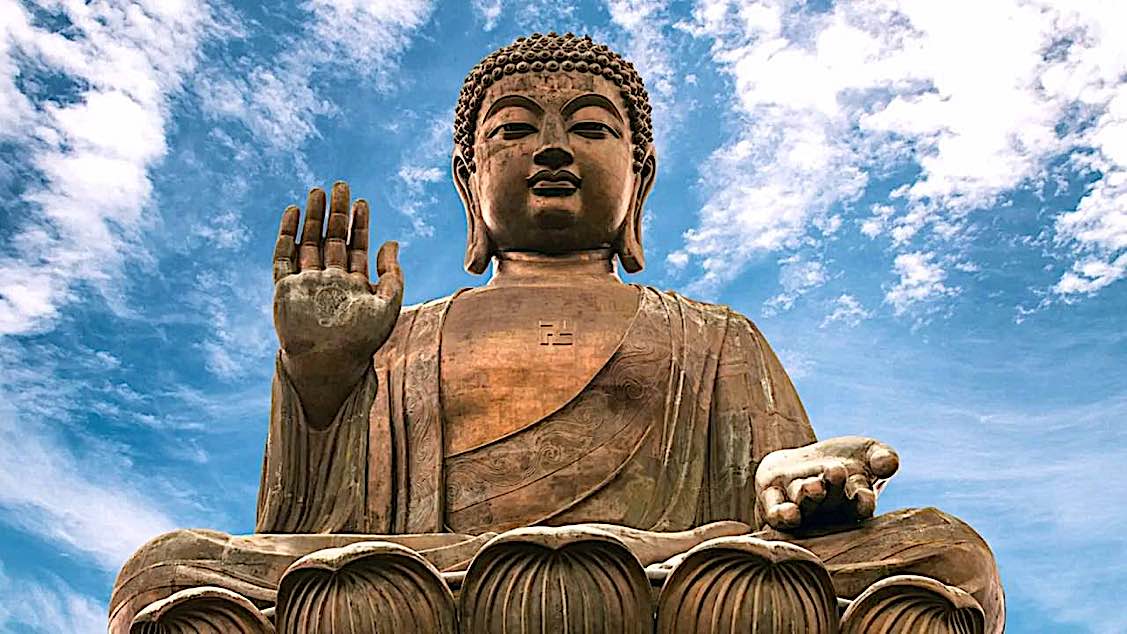In early times in Japan, bamboo-and-paper lanterns were used with candles inside. A blind man, visiting a friend one night, was offered a lantern to carry home with him.
“I do not need a lantern,” he said. “Darkness or light is all the same to me.”
“I know you do not need a lantern to find your way,” his friend replied, “but if you don’t have one, someone else may run into you. So you must take it.”
The blind man started off with the lantern and before he had walked very far someone ran squarely into him.
“Look out where you are going!” he exclaimed to the stranger. “Can’t you see this lantern?”
“Your candle has burned out, brother,” replied the stranger.
I’ve heard this koan before but it may not be as straightforward as it seems. On first glance I thought that the lantern would be enlightenment - but the blind guy who says “darkness or light, all the same to me” sounds more like the Zen teacher.
Besides, enlightenment or dharma wouldn’t burn out like a candle. So if the blind guy is already enlightened, then the lantern is a useless thing after all. It was certainly of no use to the blind guy or the dude who walked into him.
The lantern. I’m stuck now on what it represents. Maybe I have this completely wrong. It doesn’t really matter. It’s the thought that counts.
Not a Buddhist, also not spiritual, but I do love good proverbs and stories like this, so I’ll give what I was thinking.
For the blind man, he did not need the lantern to see but having the lantern allowed others to see he is there. He takes the lantern, and although it does not guide him like it might others, it announces his ‘presence’ to others. But it goes out, so he would have been bumped into whether he was using the lantern or not. He cannot see, and so he cannot see when the lantern goes out, making him angry at a passerby who did not see him because he believed he was under the protection of the light he can’t monitor. So too are those that obey/adhere to a norm they don’t have a need for, that they too are confused or bumped into while believing they’re safe by trusting in things they themselves can’t see.
Or, and this one I like more because it’s less thinking, we are going to be bumped regardless of whether we take the precautions to pre-empt ourselves or others, there are some safeties/precautions that cannot stop what is already going to happen.
I think my interpretation has some similar elements to yours so I’m posting it as a reply. I’m not particularly well-versed in Buddhism either, but I wonder if the lantern could be interpreted as an idea, a teaching, or a particular interpretation/lesson.
In this metaphor, the friend has heard a lesson/story/idea from someone else that was really helpful for him personally on the path to enlightenment. He obviously wants to share it with others because it seems really important. But while this idea resonates with him, his friend is blind to it. He’s in a different place in his life, so he can’t use it in the same way. He still listens to his well-meaning friend and takes it on his journey. But, because it doesn’t resonate with him in the same way, he can’t use it correctly. Of course a lantern would help you to be safe at night, but if you aren’t in a place to use the lantern (lesson) correctly, it’s useless to you, personally.
So, in that interpretation, maybe the blind man would represent someone who is not yet ready for that particular lesson? Maybe he’ll carry it with him until a later time when he learns to use it in his own way. Maybe he’ll learn to hear the sound of the candle so he can still use it for safety at night. Even if he never sees it.
Thank you for sharing your very-well expressed thoughts - yes, I also see the lantern as something we carry that is of benefit to others but not necessarily to ourselves (but it turns out that it’s pointless to carry it around anyway). I also see the declaration of “Can’t you see this lantern?” sounding like “Don’t you know who I am?” as the lantern could represent our ego and the delusions we carry around about our self-importance. Your second idea - that there’s no point trying to avoid the inevitable collisions with others - seems to fit well with that thought also.
The suggestion that the blind guy is perhaps the only one in the story who is seeing things clearly seems like a theme to me as well.
Thank you again for contributing your insights on the koan. These koans are very well known and there are doubtless multiple interpretations and commentaries about them available, but I deliberately don’t seek them out beyond the original texts - for me, trying to understand and discuss them cold within the context of our own experiences is most interesting.

